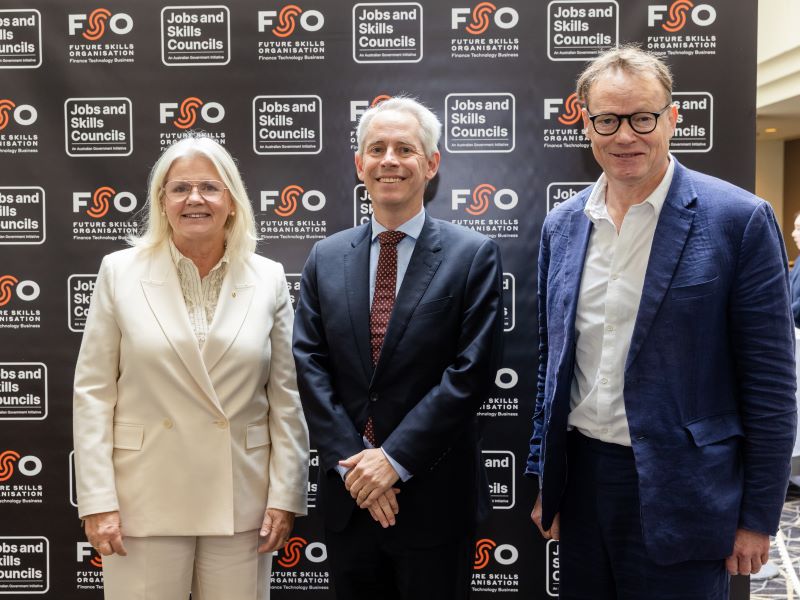Australia could face a shortfall of 250,000 workers across the finance, technology and business sectors by 2030, according to Future Skills Organisation (FSO) chief executive Patrick Kidd.
Speaking on The Commercial Disco podcast, Mr Kidd said the current talent pipeline is unable to meet demand of the sector’s growth projections.
“Addressing that means improving education access, reducing attrition, supporting transitions between jobs and recognising that many of tomorrow’s roles don’t exist yet,” he said.
“We estimate 70 per cent of current skills will change in just three years. The challenge is helping people keep up.”
While artificial intelligence has long been predicted to disrupt bookkeeping, the profession is more important than ever, according to Institute of Certified Bookkeepers (ICB) chief executive Amanda Linton.
“People have been saying AI would replace bookkeepers for 20 years – but we’re still here, and more essential than ever,” she said.
“The profession has evolved from data entry to technology-enabled advisory. It’s not about replacement; it’s about enhancement.”
Both leaders emphasised the importance of human skills alongside digital literacy.
“AI is not just a technology shift; it’s a mindset shift, with continued demand for critical thinking, interpretation, and ethical use of data,” Mr Kidd said.
Employers are increasingly willing to train staff in technical tools but struggle to find candidates with “communication skills, critical thinking and teamwork – the foundational skills that drive productivity,” Ms Linton noted.

Urgent reform of vocational education and training (VET) is needed to better align qualifications with employer needs, Mr Kidd argues.
“If employers aren’t hiring people with these qualifications, we know something’s broken. It’s time to align the system with workplace reality,” he said.
Reform must also address funding disparities between the vocational education and university sectors, which Ms Linton described a “barrier.”
Both agreed that faster, more flexible, and less fragmented training pathways – including modular, earn-while-you-learn options – are critical to meeting Australia’s future workforce needs.
The conversation comes as the productivity roundtable takes place in Canberra, bringing together leaders from industry, government and the union movement to address the skills, productivity and workforce challenges central to Australia’s economic future.
Ahead of the roundtable, FSO last week launched the FSO Skills Accelerator-AI in partnership with Microsoft — a national pilot targeting learners and over 30,000 VET educators and administrators, designed to co‑design AI training and share resources.
Mr Kidd said the initiative is about “turning ambition into action: building a workforce that is ready for the future, today.” More details on the program are available here
This article was produced by InnovationAus.com in partnership with Future Skills Organisation.
Do you know more? Contact James Riley via Email.
